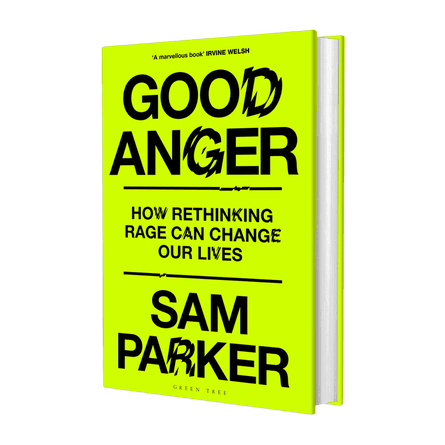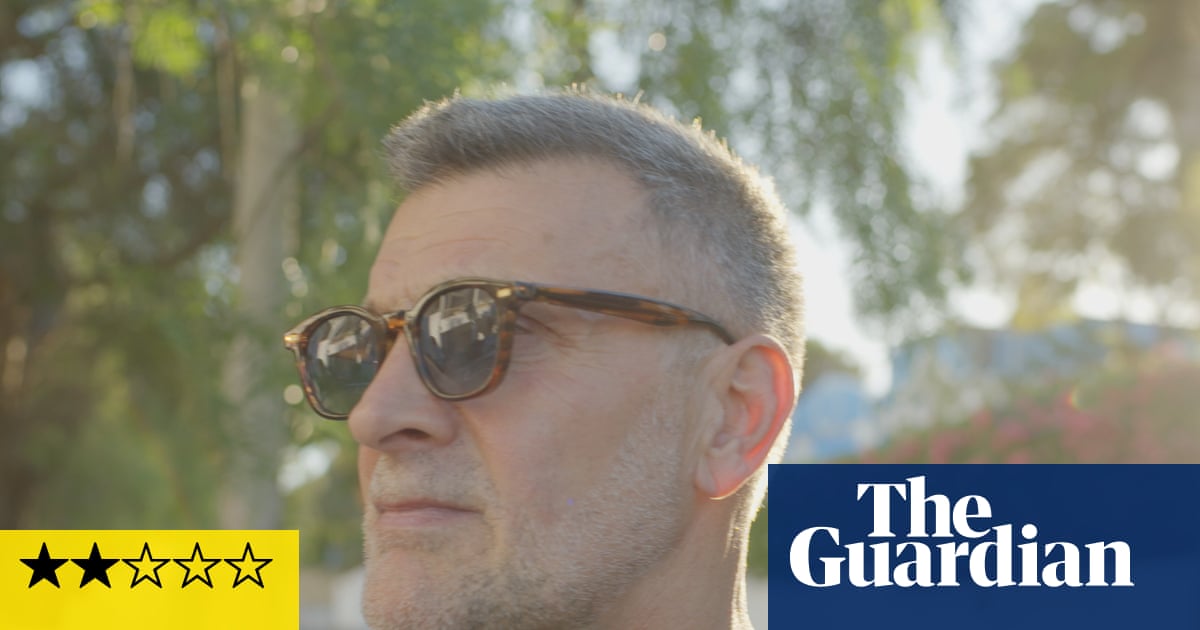My friends and I sometimes rank the seven deadly sins in order of personal relevance. For me, “wrath” always comes last. (I shan’t say what’s first – too revealing.)
Anger doesn’t feature in my day-to-day life. I even struggle to feel wrathful when it’s appropriate. World events make me fatalistic and depressed; when my gym instructor says to “let loose” on the ski machine, my effort remains constant. The time I visited a rage room, my main takeaway was that the Metallica song I selected as the soundtrack sounded fantastic on big speakers.
This might seem like a good thing: anger is rarely thought of as positive or productive. But is it true that I don’t feel anger – or am I just really good at repressing it?
“When people say: ‘I never get angry,’ what they really mean is they just contain it really well – and often at their own expense,” says Sam Parker, a senior editor at British GQ and author of Good Anger: How Rethinking Rage can Change our Lives.
Parker wrote the book “for people-pleasers, conflict-avoiders and self-improvers”, drawing from scientific research, his own experience, and interviews with therapists and other experts.
He used to believe that “the only people with an anger issue were the people who kept getting into fights and arguments, and losing their temper,” Parker tells me. “I had this idea that I was somehow beyond anger, or it was just of no use to me.”
He did struggle with anxiety. And when he hit a rough patch in his 30s, Parker tried yoga, meditation, gratitude journaling and even cold showers. What worked? Boxing.
A couple of months in, while letting loose on the bag, Parker was unexpectedly overcome by emotion, enough to wet his eyes. “For the first time in months I wasn’t sad or anxious,” he writes. “I was furious.”

Over time, it dawned on him: “The more that I recognised anger in myself, talked about it, processed it and eventually acted on it, the more my anxiety went down.”
After that epiphany, Parker learned there was a well-established scientific link between anger and anxiety – it just wasn’t widely acknowledged.
To him, it represented a critical oversight in the mental-health conversation. Anger is as natural as sadness, fear, happiness or disgust – but it’s often left out of the picture.
In part, it’s a language problem, Parker explains. “In English, we conflate ‘anger’ with ‘aggression’ or even ‘violence’, as though they are the same thing.”
But it is an especially challenging emotion to experience and be around. Even psychotherapists may avoid taking on openly angry patients, Parker learned in researching his book.
Whether in pop science or academic research, “across the spectrum, anger is sort of neglected,” he says.
Parker wrote Good Anger hoping to reframe the emotion, and help others understand, experience and express it differently. Anger is persistently seen as negative: “We tend to avoid talking about it altogether until it has boiled over into aggression,” he says. This can compound the shame and stigma.
“A lot of the time, aggressive behaviour is a choice we make,” says Parker. But the emotion itself is legitimate, exists to protect us – and often has something insightful to say.
“We tend to think that anger’s telling us something about other people: how unreasonable they are, how they’re out to get us, why they’re idiots … Far more often, it’s pointing us towards an unmet need or event from the past,” he says.
When proportionately experienced, anger is not only part of a balanced emotional mix – it can also be “a real source of determination, vitality and clarity”, Parker says, pointing us towards what we value and spurring us on.
When he finally acknowledged and began attuning to his latent anger, “that was when I started to see the real benefits.”
Parker’s right: it’s not really accurate for me to say “I never get angry.” I just avoid acknowledging it, or name it something more palatable, such as irritation or disappointment.
I associate this aversion with my adolescence, when I frequently gave into anger, lashing out at my family and feeling unpleasantly out of control.
But, I learn from Parker’s book, having been an angry teenager doesn’t necessarily make me an angry person. There are in fact two types of anger.
after newsletter promotion
“Trait anger” is inherent and individual, influenced by genetics and environment. Having high trait anger means you’re quicker than others to fly off the handle. “State anger”, on the other hand, is temporary, triggered by frustration or a perceived threat.
“No one gets away without having state anger,” says Parker. The question is, how do you typically express it? Anger researchers distinguish between “anger-out” and “anger-in”: externalising the emotion through physical or verbal aggression, versus striving to contain it and, in doing so, turning it inwards.

The former might be more familiar (and harder to ignore), but the “anger-in” crowd are suffering in silence, Parker says. Such containment is unsustainable and can carry a high personal cost: “Anger deferred is anger multiplied.”
Refusing to acknowledge anger may even make people sick, Parker says, pointing to the deleterious effects of sustained elevated cortisol, the stress hormone. However, not everyone feels equally free to express it.
Women and girls are widely socialised to swallow anger and keep the peace; many told Parker their instinctual response to rage was to cry. For those burdened by the “angry Black woman” stereotype, navigating the emotion is even more fraught.
And though boys generally feel more attuned and entitled to anger, “they’re not taught to be curious about what their anger is really about, and what they should do with it,” Parker says.
A healthy relationship with anger entails active, open engagement – neither denying its existence nor letting it run the show. For instance, leftwing commentator and author Ash Sarkar told Parker about learning to understand and harness her anger as a self-protective response to racist and sexist attacks. But achieving such presence of mind takes time and practice.
The accepted wisdom that anger needs to be released, such as by punching a pillow or primal screaming, has been proven to be of limited psychological benefit, says Parker.
More from Why am I like this:
A better goal is “creating a positive, productive association in your body and mind”. That can be achieved through physical movement, as Parker discovered with boxing; other examples are jogging and dancing. Anger can also be channelled creatively through journaling, painting or drawing.
Once past the heat of the moment, you can decide with clarity what, if any, action is necessary, Parker says. “Sometimes you do have to go and have the scary conversation, and say the difficult thing.”
Other times, merely acknowledging how you feel is enough to lessen the sting, and help you move on. “Today, if I feel angry about something, I’ve trained myself as best I can to think: ‘OK, this is information,’” says Parker.
Knowing his tendency to bury anger, Parker tries now to stay connected with it. For example, he and his partner have discussed their respective triggers and approaches to arguing. “What you’re really doing is handing each other a map,” he explains, “so that when conflict does arise, you can find your way out of it a bit quicker.”
Curious to learn more about my own terrain, I started by asking myself: if I was angry, what would I be angry about? The question flushes out some long-buried hurts and perceived injustices that I’d pushed from consciousness. None feel like they need to be acted upon, but they feel better for being excavated.
I realise that while I’ve avoided conflict, believing it to be ruinous, the friendships I value most are those where we’ve already demonstrated that we can disagree, express frustration or argue, and recover.
It’s a comforting takeaway: wrath might be uncomfortable, but it isn’t necessarily a deadly sin.
-
Good Anger: How rethinking rage can change our lives is out in the UK now and published in the US on 19 August

 3 months ago
58
3 months ago
58

















































